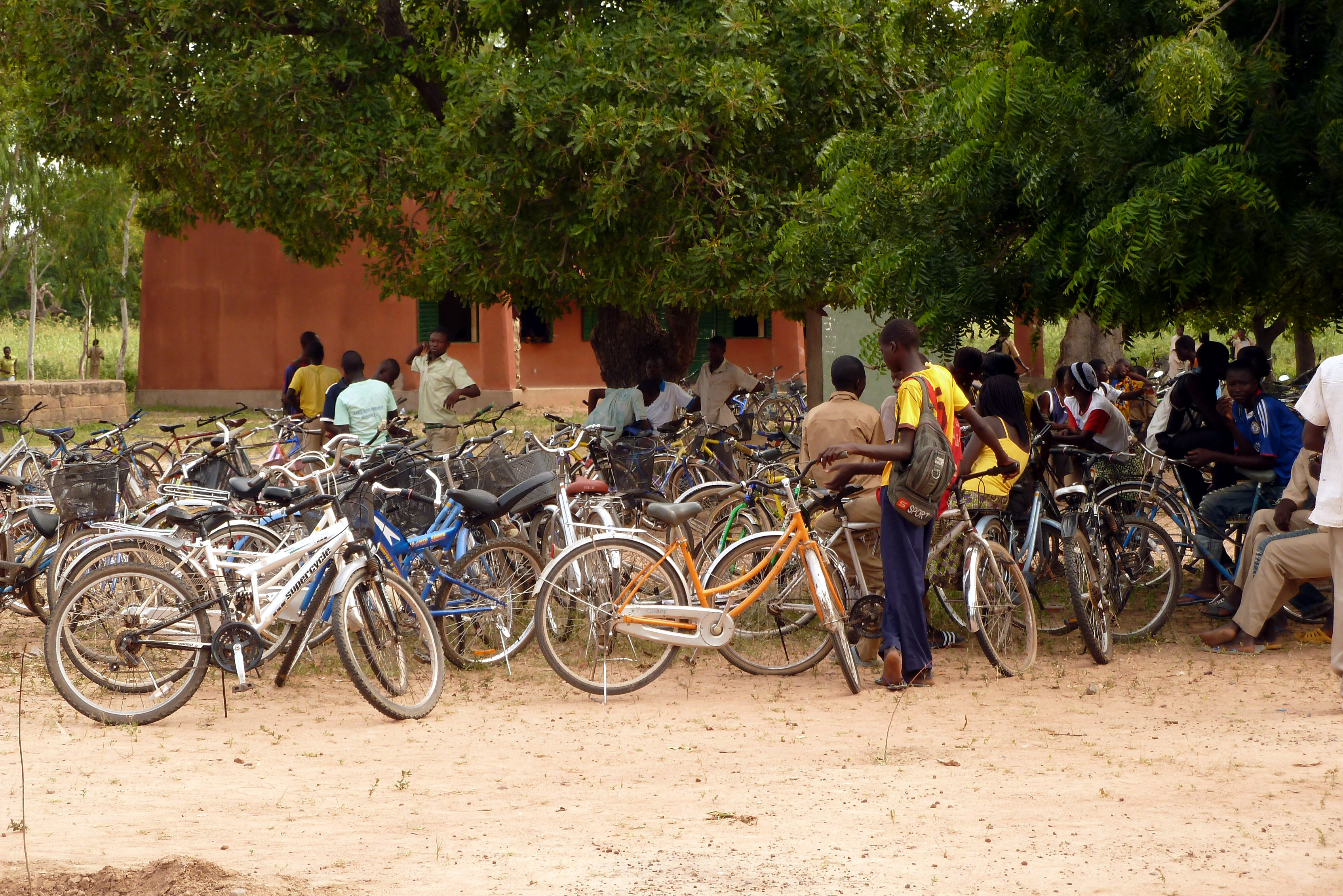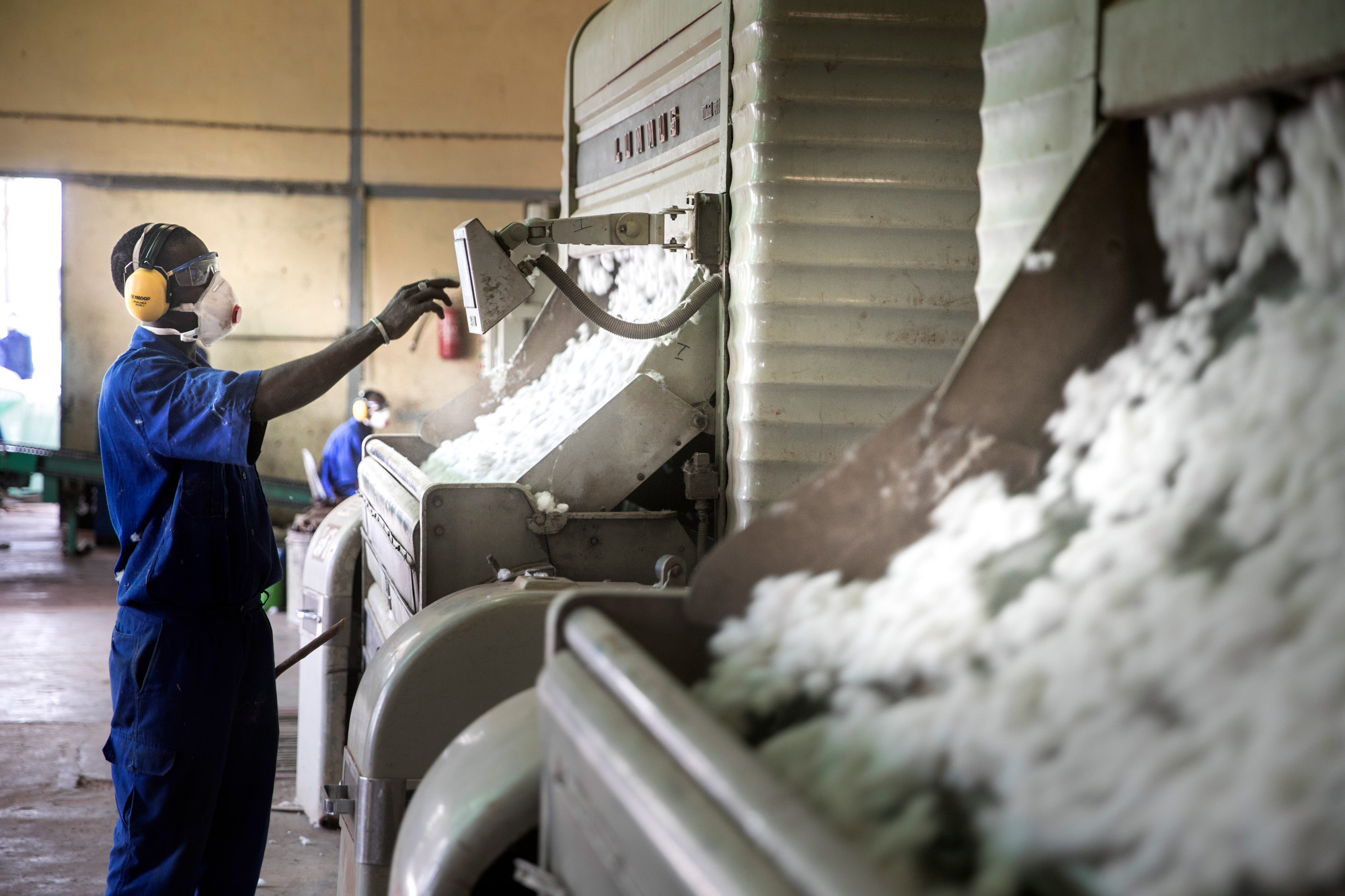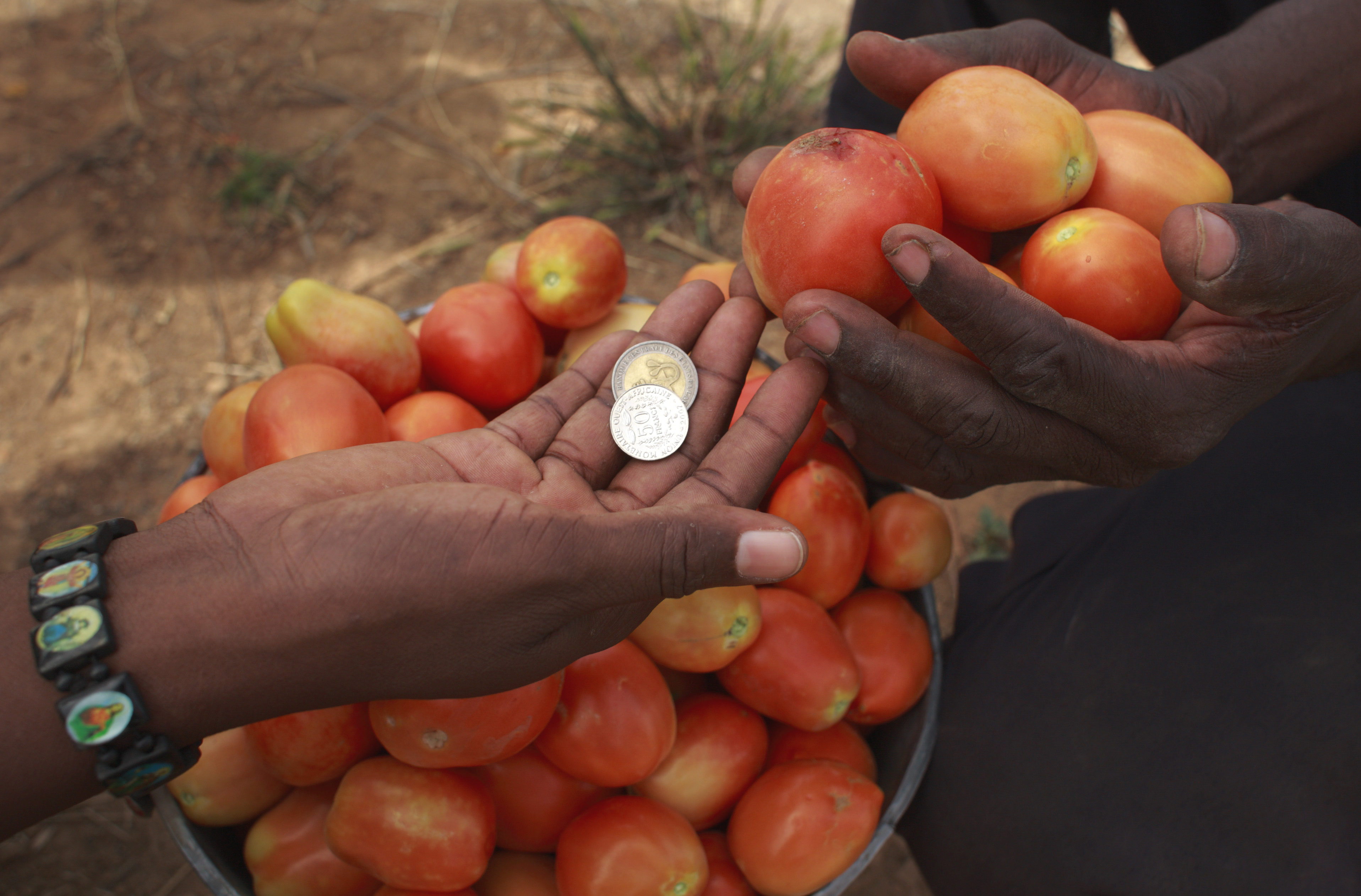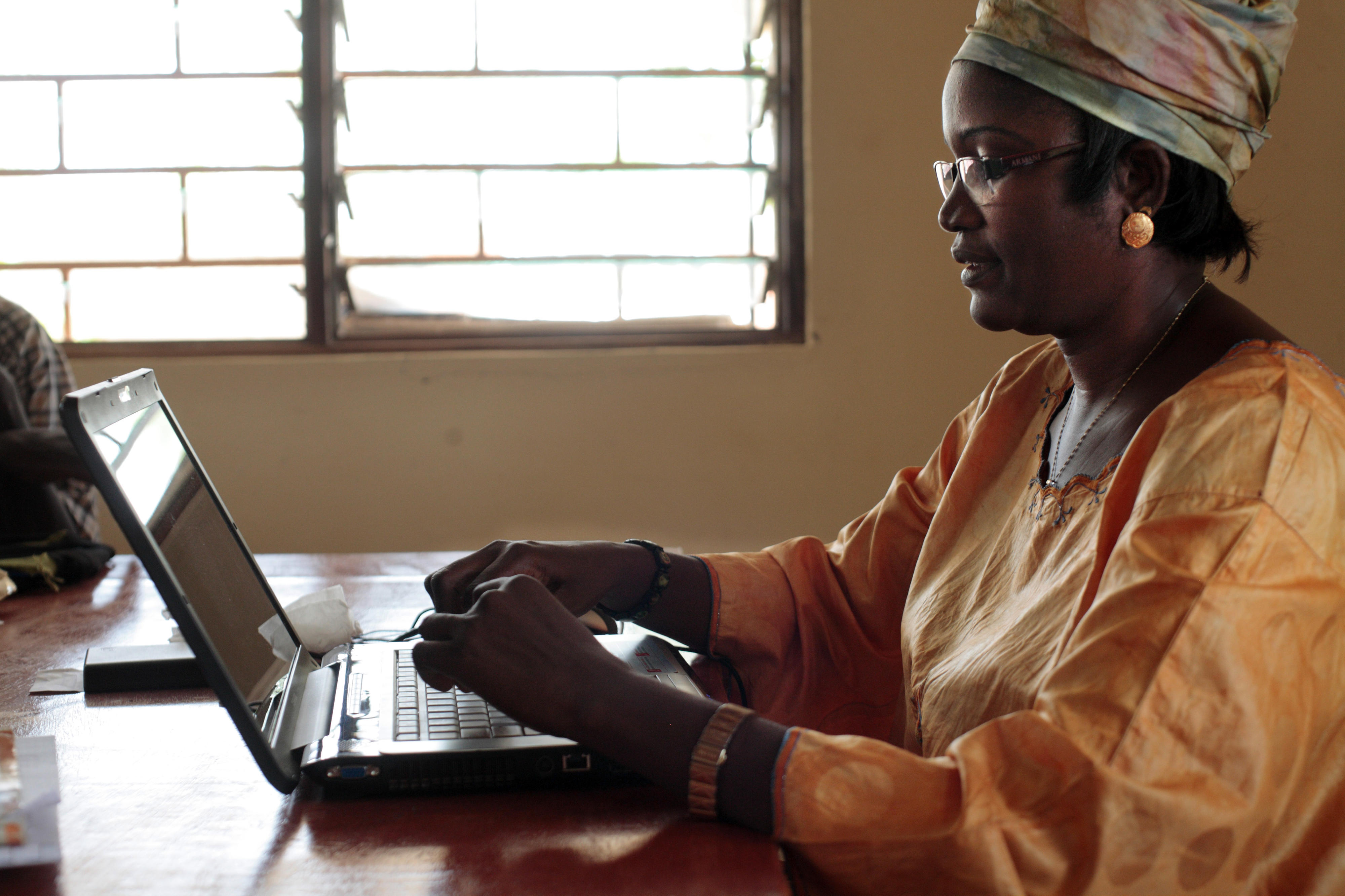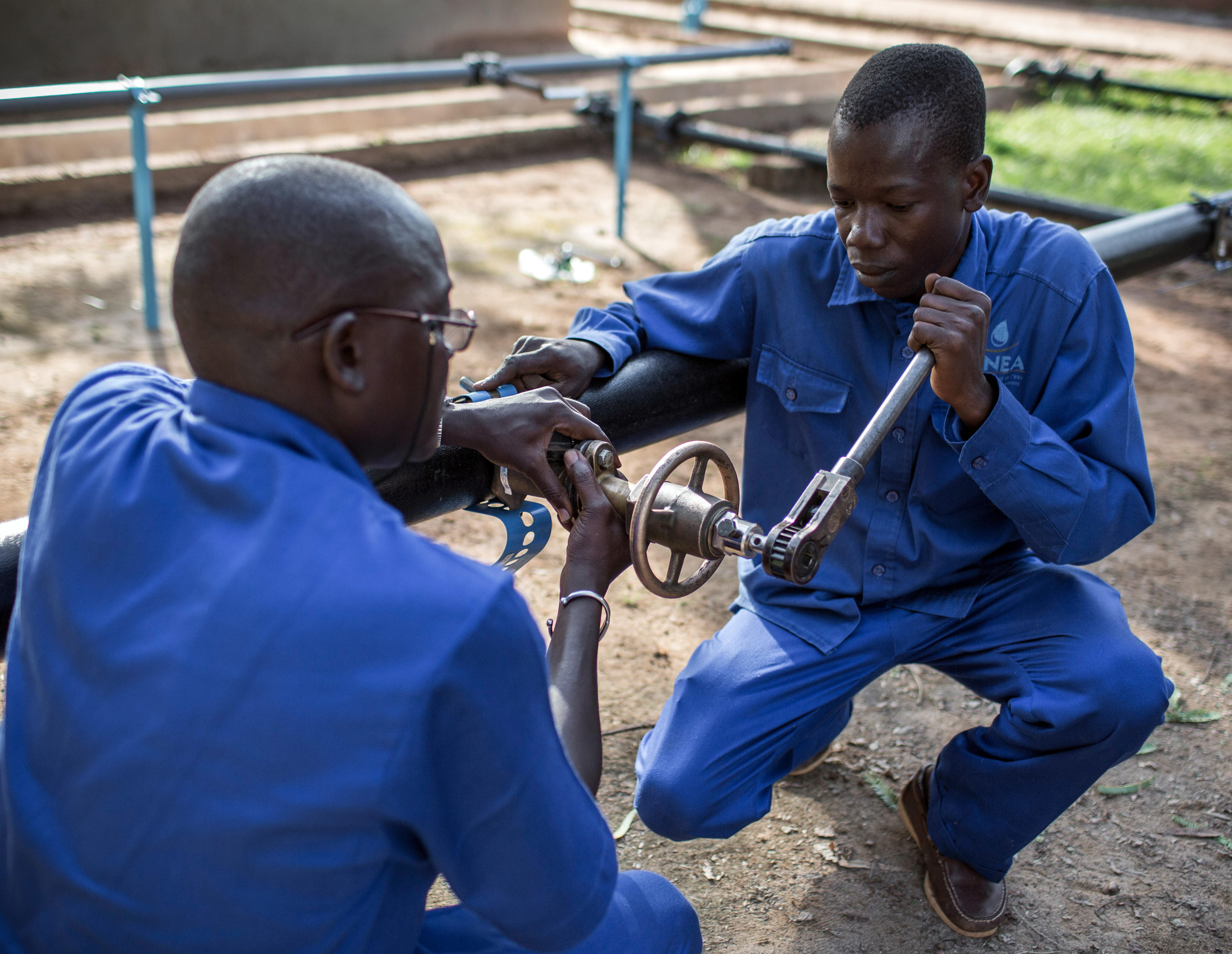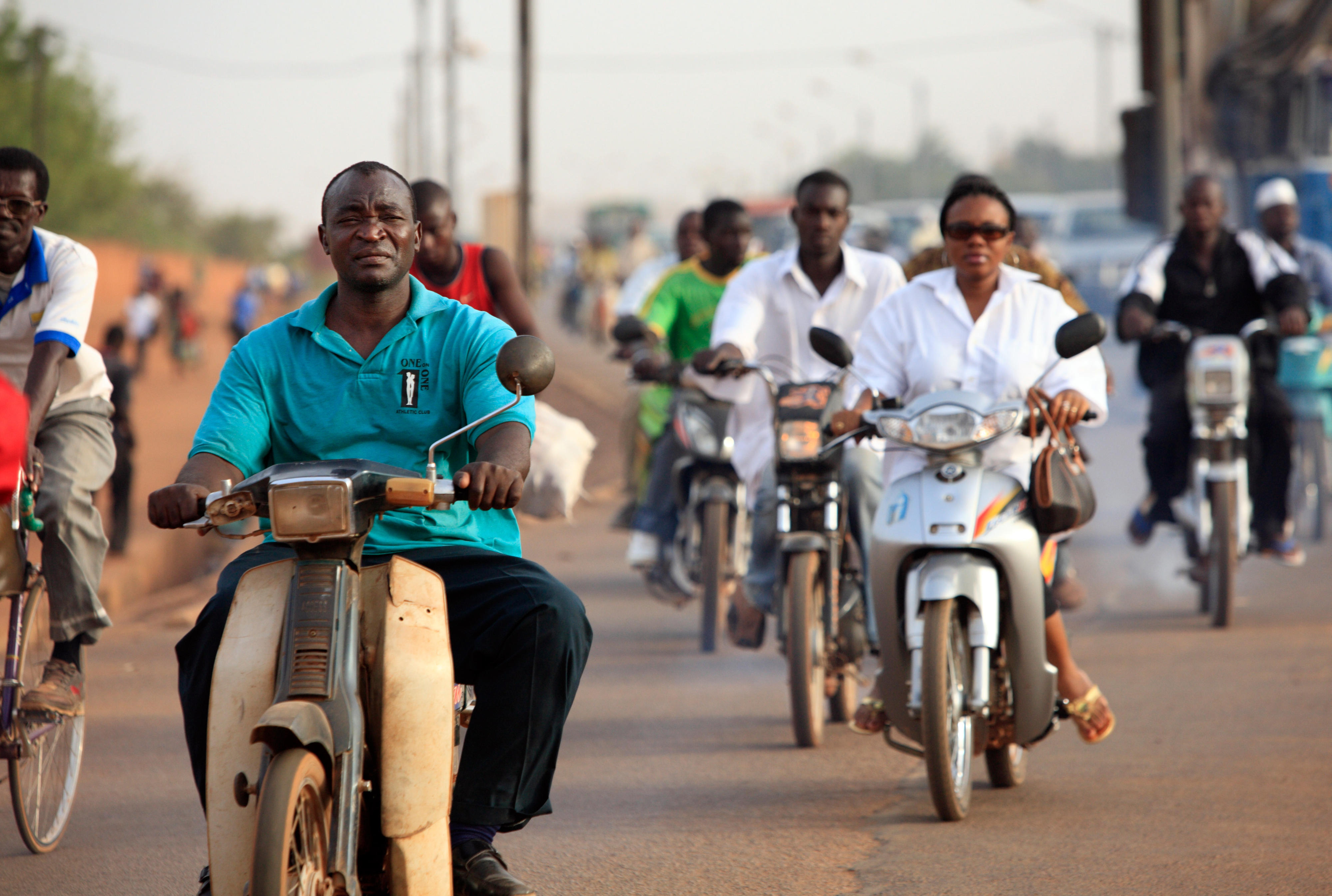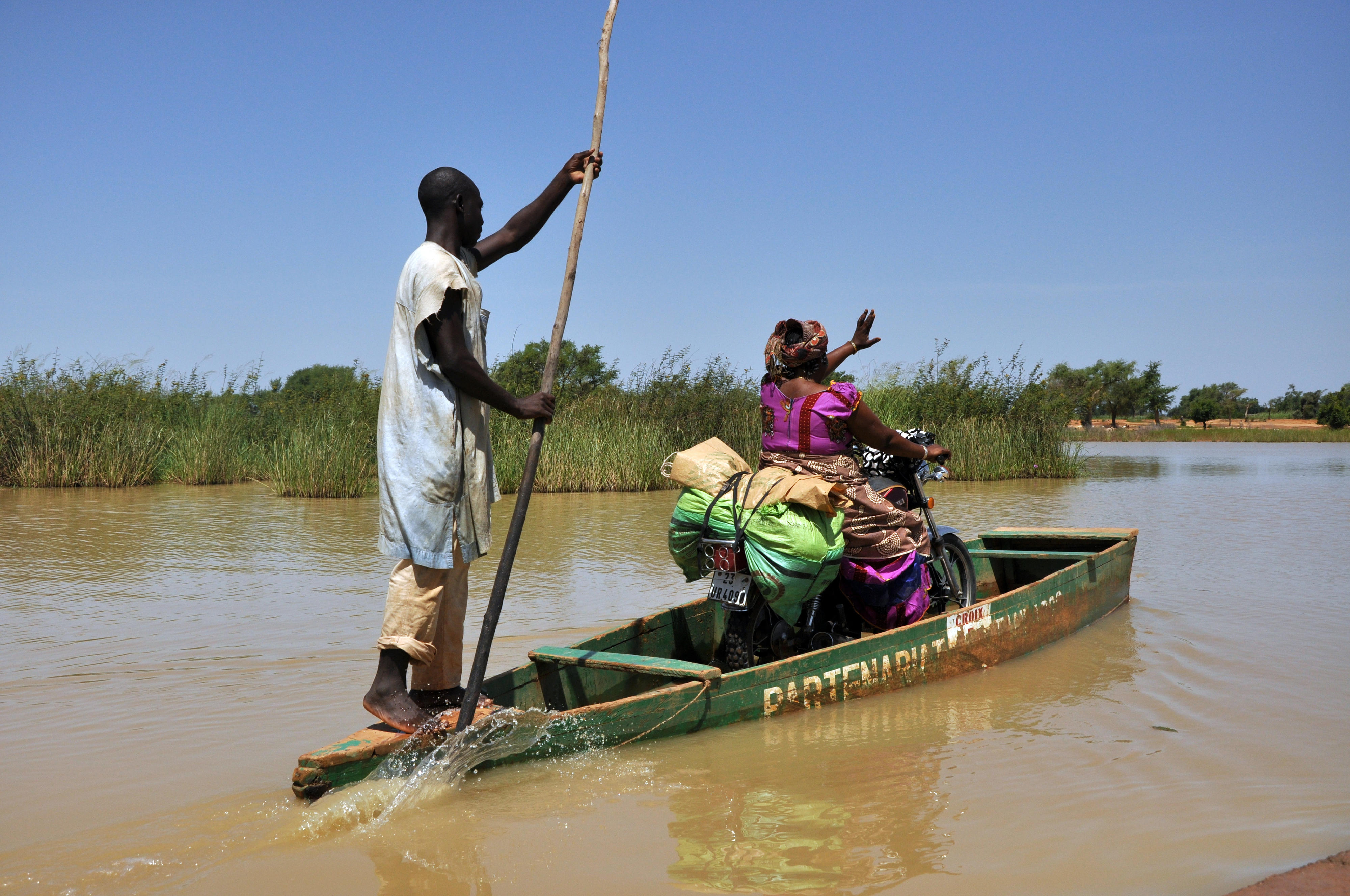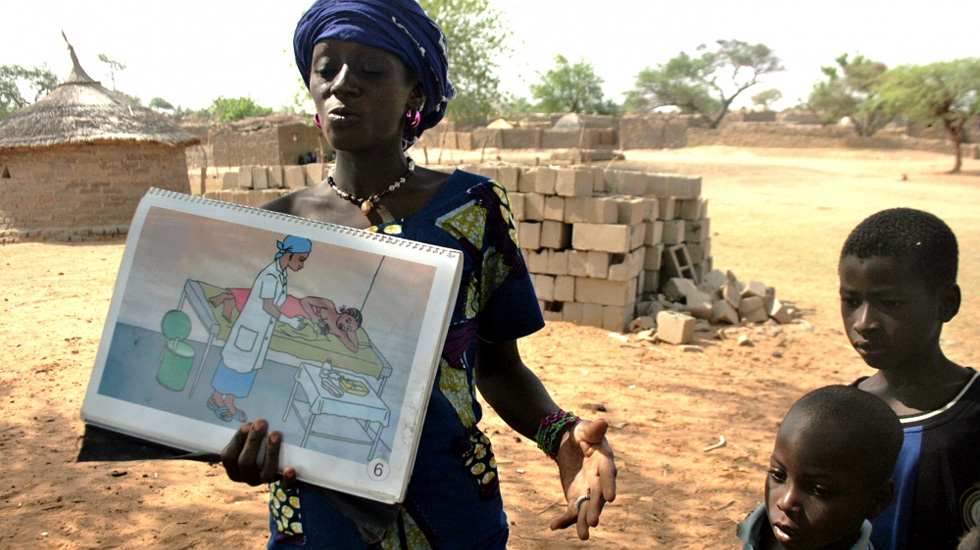Young people with their bikes on a square in Burkina Faso
Copyright© Fernando Hidalgo Marchione, via flickr, CC BY-SA 2.0
Burkina Faso
The number of terrorist attacks by Islamist groups has been continuously increasing, affecting more and more parts of the country. Targets include not only government facilities like police stations and local government offices but also schools and churches. The government has lost control of more than 40 per cent of the country. In the Global Terrorism Index (External link) (GTI), which assesses the impacts of terrorism in 163 countries, Burkina Faso was first in 2025. In the first half of 2024, more than 2.500 civilians have been killed.
The dire security situation and climate change are dramatically exacerbating the already precarious food situation in the country. Extreme weather events such as heatwaves, droughts and heavy rains are becoming more frequent, resulting in degraded soils and poorer harvests. People in rural communities in particular, most of them subsistence farmers, are losing their livelihoods. The poor security situation has also meant that fields cannot be worked and that cities have been cut off from food supplies. The United Nations estimates that about 2.7 million people in Burkina Faso are currently suffering acute hunger.
The BMZ is not satisfied with the lack of progress on democracy in Burkina Faso since the military coups in 2022. But Germany has a huge interest in continuing to support Burkina Faso. As in Niger, Mali and Chad, livelihoods in Burkina Faso must be safeguarded and the causes of the crisis reduced in order to make the Sahel as a whole a safer place.
This means that development cooperation will be continued in Burkina Faso. However, for the time being, this will not be a return to the regular development cooperation with Burkina Faso’s government like before the coups. Instead, activities will be implemented without involving the government: This means that no funding is channelled directly to the central government. Instead, the funds go to subordinate authorities, municipalities, civil society organisations and international organisations that then use the funding for concrete projects. This is a way to ensure that the military government does not benefit from development funding.
In addition, development cooperation focuses on efforts that improve the living conditions for the people, for instance by creating new jobs in agriculture, developing climate-smart farming methods and improving water supply. A special focus is put on supporting the huge number of internally displaced persons and the communities hosting them.
German development cooperation with Burkina Faso
Development cooperation between Germany and Burkina Faso focuses on the following three core areas:
- Transformation of agricultural and food systems
Areas of intervention: agriculture, rural development - Peaceful and inclusive societies
Areas of intervention: good governance, peacebuilding and conflict prevention - Conserving nature and natural resources, protecting life on Earth
Area of intervention: water
Transitional development assistance measures are embedded in the core areas. Together with the United Nations World Food Programme (WFP), the BMZ developed the Sahel Resilience Initiative to bring about lasting improvements in the food and income situations of people in Burkina Faso, Niger, Mali, Mauritania and Chad. The assistance provided under the initiative includes support for restoring agricultural land and ensuring that schools are supplied with food.
The BMZ is also engaged in promoting children’s and young people’s rights in Burkina Faso. The aim is to protect socially disadvantaged children and young people against the worst forms of child labour, child trafficking and gender-based violence. By building and expanding school networks, community-based social services and education and training programmes, their future prospects are to be improved. Awareness-raising programmes are intended to help reduce the number of unwanted early pregnancies.
SDG trends for Burkina Faso
- On track or maintaining SDG achievement
- Moderately improving
- Stagnating
- Decreasing
- Trend information unavailable
